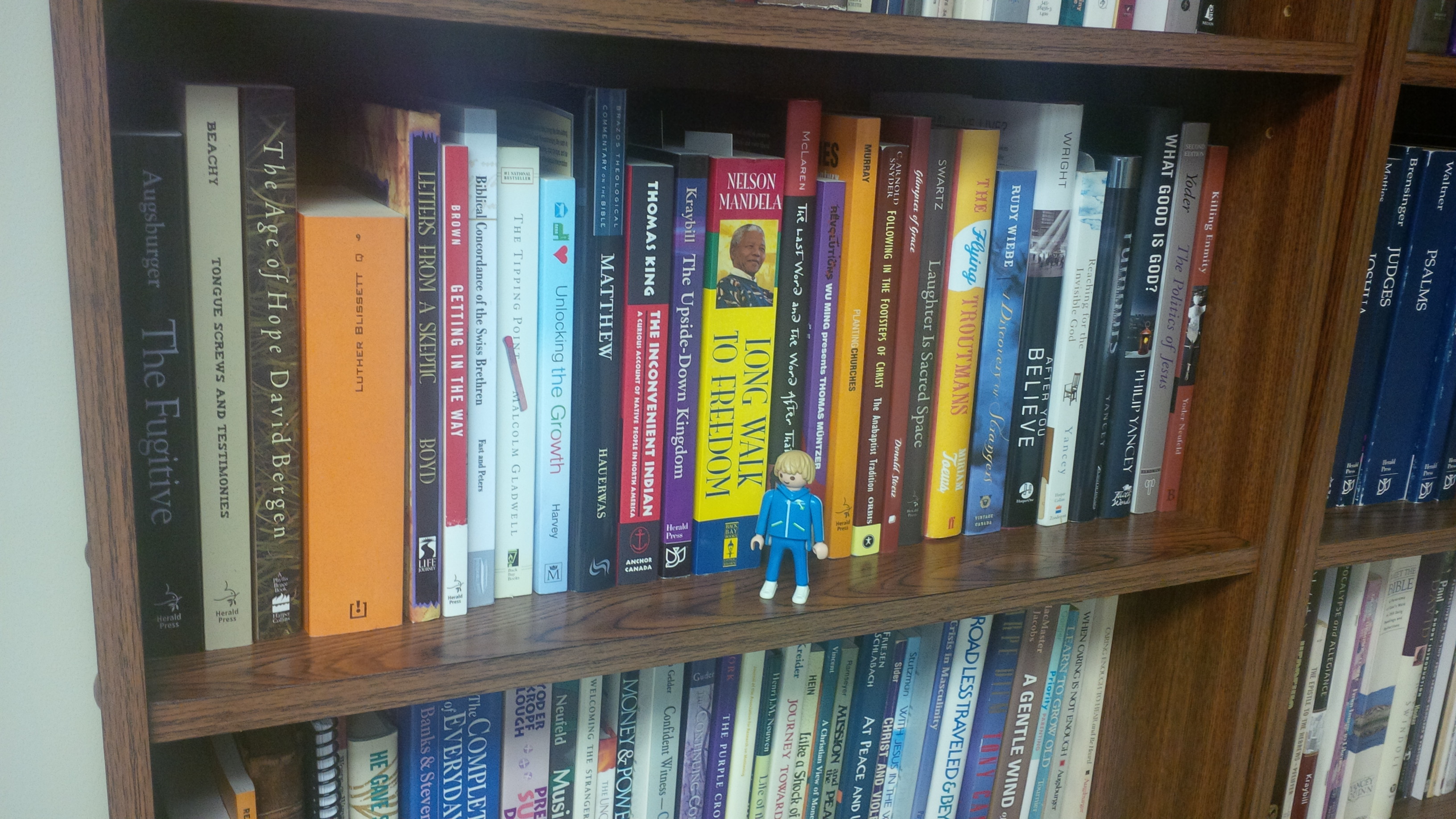I couldn’t narrow my thoughts about this book to one blog post, so this is first of a two-part review of “Jesus Feminist” by Sara Bessey.
Sarah Bessey is someone that I follow with a great deal of interest, for a variety of reasons. First, she embodies a lot of the ways I see myself. She is Canadian, and we need more writers who spell colour with a ‘u’. She’s also a parent to kids the same age as mine. If they ever meet as adults, I’d like to think their conversation would go something like this: “Your parents over-shared about you online as kid? Mine too.” She not only enjoys telling stories, but also seems to write as though she believes that telling the story well is at least as important as staying within the bounds of orthodoxy while you tell it. So, while she recognizes the pitfalls of the label, there might be some days when she would identify herself as an evangelical Christian.
There are also ways I wish I could be more like her. She tells stories well and approaches complex subjects simplicity, graciousness and humour. She’s a great writer, she’s such a great writer that she has parlayed a blog into a book contract, and that book is what I’m reviewing now.
Not to be entirely outdone, I have managed to parlay a significantly less successful blog into a self-published book. This also means that I am open to learning ideas from other authors about book promotion, and the grass roots promotion of this book was brilliant. She invited her readers to take pictures of themselves, holding up signs that read “I’m a … and I’m a Jesus Feminist.” It demonstrated popularity, it communicated accessibility, and it was fun. I had even envisioned what mine would look like; me holding a piece of paper that read, “I’m a Mennonite pastor and ..” while standing in front of my church sign that read “I’m a Jesus Feminist.”
I had to hesitate though, as I wondered about the accuracy of that statement. Am I a Jesus Feminist?
In many ways, the answer would be yes. Do I agree with the tagline on the cover, “God’s radical notion that women are people too”? Of course. Do I believe that women are equal to men in the eyes of God? Yes. Do I believe that women should be equal to men in the eyes of the law, and therefore be entitled to equal pay for equal work, and full voting, driving and legal protection rights? Do I want my wife and two daughters to live in a world where their merit is evaluated independent of their gender? Yes. In fact, I’m sure that I would meet most of the academic criteria to classify myself as a feminist.
I recognize too that many people will use a different definition for feminism, that include things that I am not comfortable with. I recognize too that there are a variety of things that empowered women feel entitled to do, and I unapologetically don’t think that those things are in their best interests. So, using that rationale, there will be people on both sides of the feminist fence that would argue the label doesn’t fit me.
Now, if I left that message on the sign for any length of time, I might turn some heads, I might help Ms. Bessey sell a few more books, and I might even generate some healthy conversation around God’s view of women etc. I also know a long list of people who would want to offer me a corrective semantic argument by explaining to me the evils of feminism, and in various theological circles I would be branded accordingly. But as inconvenient as they might be, I don’t fear the ghosts of feminist present or future.
Most of all, I fear the ghost of mysogyny past. At various times, many of us will take the path of least resistance, whether or not we are aware of the consequences. For the better part of my youth, the short cut to an easy laugh, social acceptance and evangelical orthodoxy was to oppose feminism, and I recognize now that in the process, I hurt some people. In the process, I propped up systems and institutions that under-valued and devalued some of the exact same people it was supposed to be protecting and upholding.
So, am I a feminist? Don’t ask me. Maybe ask my wife. Maybe ask my daughters in their first year of university. Better yet, wait until my new, less automatic view of women produces more good than my old view caused harm, but by then, the answer to your question will be obvious.

Leave a Reply